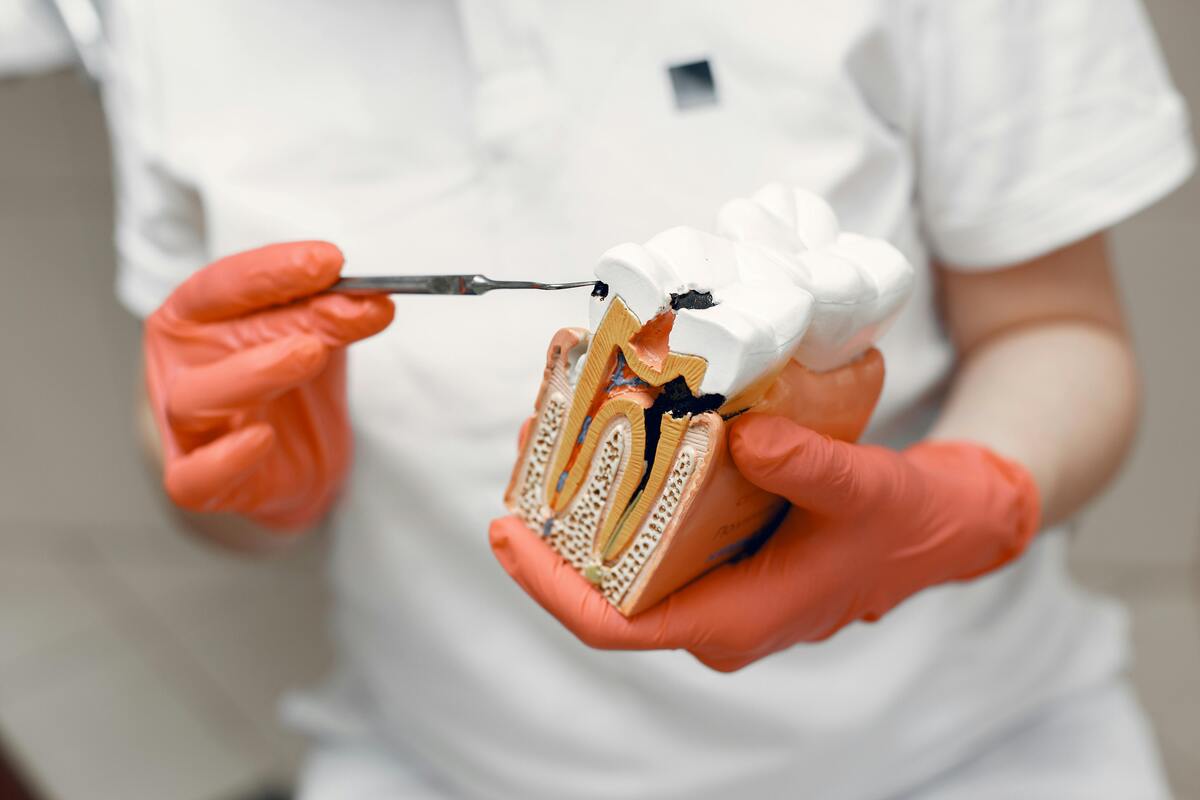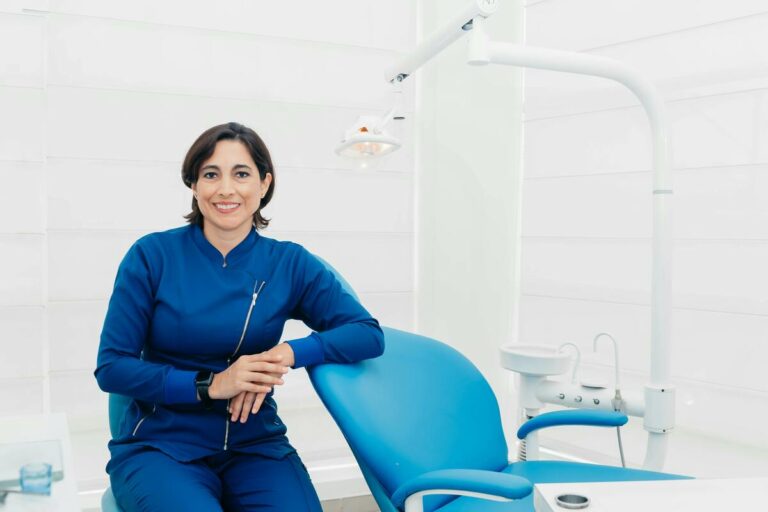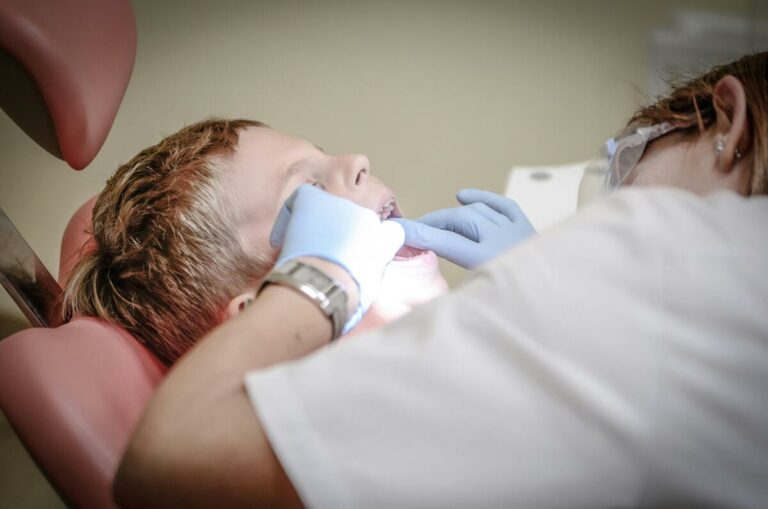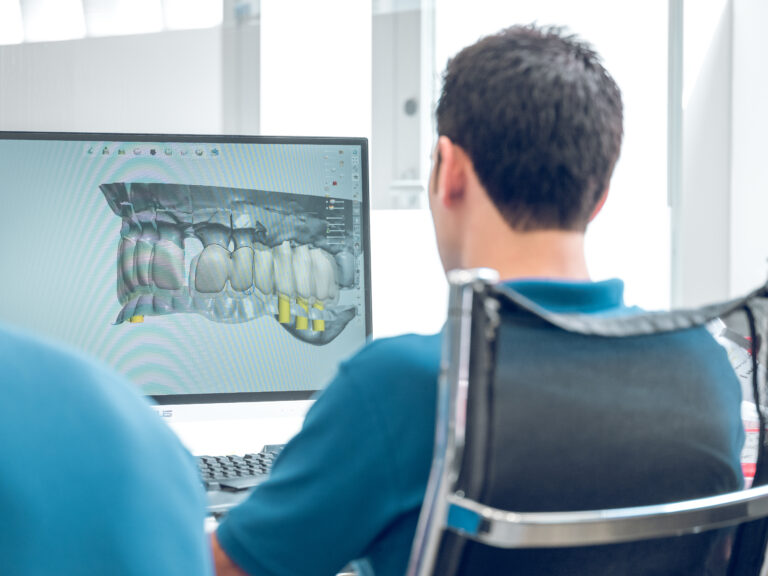Root Canal Specialists in Montclair: Painless Treatment Approaches You Should Know
Root canal specialists in Montclair have revolutionized patient care with advanced, painless treatment approaches. By integrating cutting-edge technology such as digital imaging and laser-assisted procedures, they enhance precision and minimize discomfort. Individualized care plans, open communication, and tailored strategies address unique oral health needs. Options like sedation therapies and advanced anesthesia systems further guarantee a soothing experience. Discover how these specialists transform a traditionally intimidating procedure into a seamless, stress-free journey.
The Evolution of Root Canal Treatments
Over the years, root canal treatments have undergone considerable advancements, revolutionizing the approach to endodontic care. Historically, techniques were rudimentary, leading to patient misconceptions about the procedure’s efficacy and discomfort levels. Early practices lacked the precision and materials available today, often resulting in less-than-ideal outcomes. These historical techniques involved rudimentary tools and limited anesthesia options, fostering the belief that root canal treatments were inherently painful. However, as dental research progressed, innovative methodologies emerged, addressing these misconceptions and enhancing patient experiences. Modern endodontics embraces refined techniques and improved analgesics, greatly reducing discomfort and ensuring successful outcomes. Understanding the evolution of these procedures helps dispel lingering patient misconceptions, reinforcing the importance of seeking specialized care to achieve optimal oral health.
Understanding Modern Diagnostic Tools
Modern diagnostic tools have markedly enhanced the precision and efficiency of root canal treatments in Montclair. Digital imaging advancements, such as Cone Beam CT scans, provide detailed three-dimensional views of dental structures, facilitating accurate diagnosis and treatment planning. Additionally, electronic apex locators offer precise measurements of root canal length, minimizing the risk of complications and improving patient outcomes.
Digital Imaging Advancements
How have advancements in digital imaging transformed the diagnostic capabilities of root canal specialists? Modern digital imaging technologies have greatly enhanced the precision and effectiveness of endodontic diagnoses. By providing high-resolution images, these tools allow specialists to visualize the intricate anatomy of the tooth and surrounding tissues with unparalleled clarity. This enhanced visualization facilitates more accurate identification of complex root canal systems, fractures, and other pathologies. As a result, treatment accuracy is markedly improved, reducing the likelihood of missed canals or incomplete treatments. Additionally, digital imaging offers real-time feedback, enabling immediate adjustments to treatment plans if necessary. This not only optimizes clinical outcomes but also enhances patient confidence, knowing their treatment is based on the most accurate diagnostic information available.
Cone Beam CT Scans
Cone Beam Computed Tomography (CBCT) has revolutionized the field of endodontics by providing root canal specialists with a powerful diagnostic tool. This advanced ct imaging technique offers three-dimensional views of the patient’s oral structures, enabling a more accurate assessment of complex root canal anatomies. The cone beam technology captures detailed images with minimal radiation exposure, enhancing patient safety while delivering superior diagnostic capabilities. Through precise visualization, CBCT aids specialists in identifying intricate root configurations, canal obstructions, and periapical lesions with increased accuracy. This technological advancement facilitates in-depth treatment planning, ensuring that interventions are meticulously tailored to the patient’s unique dental anatomy. Consequently, the integration of cone beam ct imaging in endodontic practice greatly enhances the predictability and effectiveness of root canal treatments.
Electronic Apex Locators
Electronic Apex Locators represent a considerable advancement in endodontic diagnostics, offering root canal specialists a non-invasive means to determine the working length of the root canal with remarkable precision. Apex locator technology enhances root canal accuracy by utilizing electrical resistance to pinpoint the apex of the tooth, thereby eliminating the guesswork traditionally associated with this procedure. By providing exact measurements, these devices considerably reduce the risk of over-instrumentation, which can lead to complications. For patients, this precision translates to a more efficient and comfortable treatment experience, minimizing the need for additional appointments or corrective procedures. In Montclair, where advanced dental care is a priority, the integration of apex locator technology underscores a commitment to improving patient outcomes through cutting-edge diagnostic tools.
The Role of Technology in Minimizing Discomfort
In Montclair, root canal specialists are leveraging cutting-edge technology to enhance patient comfort and reduce procedural discomfort. The integration of advanced imaging techniques allows for precise diagnostics and treatment planning, greatly reducing patient anxiety. Additionally, laser-assisted procedures and digital anesthesia systems offer minimally invasive options that optimize patient outcomes and improve overall treatment experiences.
Advanced Imaging Techniques
While advancements in dental technology continue to revolutionize patient care, the utilization of advanced imaging techniques plays a pivotal role in enhancing the precision and comfort of root canal procedures in Montclair. Cone Beam Computed Tomography (CBCT) and digital radiography are prime examples of how advanced imaging contributes to treatment accuracy. These technologies offer three-dimensional visualization, allowing endodontists to meticulously assess root canal anatomy and detect complex issues that traditional methods might miss. By providing detailed insights into the tooth structure and surrounding tissues, these imaging techniques minimize procedural errors and reduce the likelihood of discomfort. The enhanced treatment accuracy afforded by these tools guarantees that patients receive care that is both effective and tailored to their specific dental needs.
Laser-Assisted Procedures
Beyond the precision afforded by advanced imaging techniques, laser-assisted procedures stand at the forefront of technological advancements aimed at minimizing patient discomfort during root canal treatments in Montclair. Laser technology introduces a new paradigm in endodontic care, offering a more efficient and less invasive alternative to conventional methods. By utilizing focused light energy, lasers facilitate the removal of infected tissue with remarkable accuracy, reducing the need for mechanical instrumentation. This precision not only enhances the success rate of root canal therapy but also contributes to painless procedures by minimizing trauma to surrounding tissues. Additionally, laser-assisted treatments promote faster healing and decreased postoperative sensitivity, ensuring an improved patient experience. Such innovations underscore the commitment of Montclair specialists to delivering state-of-the-art, patient-centered dental care.
Digital Anesthesia Systems
Digital anesthesia systems represent a notable advancement in dental technology, offering a precise and patient-friendly approach to pain management during root canal procedures in Montclair. Utilizing digital sedation, these systems enable dentists to administer anesthesia with unparalleled accuracy, thereby enhancing patient comfort. By controlling the dosage and delivery rate electronically, digital anesthesia minimizes the risk of over- or under-sedation, ensuring a tailored experience for each individual. This approach considerably reduces anxiety and discomfort levels, providing a more pleasant clinical experience. Additionally, the real-time monitoring capabilities of digital sedation systems allow for immediate adjustments, further optimizing patient outcomes. Such innovations highlight the pivotal role of technology in advancing dental care, underscoring the commitment to improving patient experiences in Montclair’s root canal treatments.
Techniques for a Stress-Free Procedure
Achieving a stress-free root canal procedure involves implementing a combination of advanced techniques and patient-centered care. Root canal specialists in Montclair employ a variety of calming techniques to guarantee patient comfort. These include creating a serene environment with soothing music and aromatherapy. In addition to these ambient strategies, sedation options are utilized to alleviate anxiety. Nitrous oxide, commonly known as laughing gas, provides minimal sedation and helps patients remain relaxed during the procedure. For those requiring deeper sedation, oral sedatives or intravenous options are available. These methods are carefully chosen based on patient medical history and anxiety levels. By integrating these approaches, root canal treatments are transformed into a more manageable experience, minimizing stress and enhancing overall patient satisfaction.
Importance of Patient-Centered Care
Patient-centered care is a cornerstone of effective dental practice, particularly in the domain of root canal treatments. Root canal specialists in Montclair prioritize patient engagement, ensuring that individuals are active participants in their own treatment plans. By fostering open communication, practitioners can tailor personalized treatment approaches that address specific patient needs and concerns. This engagement not only enhances patient satisfaction but also promotes a deeper understanding of the procedure, alleviating anxiety and facilitating informed decision-making. Personalized treatment is further supported by thorough assessments and individualized care plans, which take into account the unique oral health conditions and preferences of each patient. Ultimately, patient-centered care in root canal therapy improves treatment outcomes and contributes to a more positive dental experience.
Benefits of Minimally Invasive Methods
In addition to patient-centered care, the adoption of minimally invasive methods in root canal treatments represents a significant advancement in dental practice. These techniques prioritize patient comfort by reducing post-operative pain and accelerating recovery times. With smaller incisions and precision-driven equipment, minimally invasive techniques limit tissue damage and preserve tooth structure. This approach not only enhances patient experience but also contributes to successful clinical outcomes by minimizing complications. By utilizing advanced imaging and microsurgical instruments, dental professionals can achieve higher levels of accuracy, reducing the need for repeat procedures. Consequently, patients benefit from shorter treatment durations and improved overall oral health. The focus on preserving natural dentition underscores the value of these techniques in contemporary endodontic care, promoting long-term oral wellness.
How Montclair Specialists Stand Out
Although many dental practices offer root canal treatments, Montclair specialists distinguish themselves through their exceptional commitment to advanced technology and personalized care. Leveraging state-of-the-art equipment and innovative techniques, they enhance the precision of procedures, minimizing discomfort and optimizing patient satisfaction. Each specialist in Montclair is highly qualified, possessing expert qualifications that guarantee they remain at the forefront of endodontic advancements. They emphasize a patient-centered approach, tailoring treatment plans to meet individual needs and preferences while maintaining the highest standards of clinical excellence. Continuous education and training are prioritized, allowing Montclair specialists to integrate the latest methodologies into their practice. This dedication to both technological proficiency and personalized service solidifies their reputation as leaders in achieving superior patient outcomes in root canal therapy.
Preparing for Your Root Canal Appointment
Montclair specialists’ commitment to advanced technology and personalized care sets a strong foundation for patients preparing for their root canal appointment. To alleviate patient anxiety, an appointment checklist is essential. Patients should verify insurance coverage, review pre-procedure instructions, and arrange transportation if sedation is anticipated. Confirming an understanding of the procedure can mitigate apprehension; consequently, patients are encouraged to ask questions during consultations. Specialists employ calming techniques and utilize cutting-edge anesthetic options to guarantee a pain-free experience. Dietary adjustments, such as avoiding alcohol or caffeine, are recommended to optimize sedation effects. Adequate rest prior to the appointment also enhances patient comfort. By adhering to these preparatory guidelines, patients can approach their root canal with confidence, assured of a smooth, efficient process.
Post-Procedure Care and Recovery Tips
How does one guarantee excellent recovery following a root canal procedure? Adhering to a meticulous post-procedure care plan is essential. Immediate attention to pain management is vital; patients are advised to use prescribed analgesics to mitigate discomfort. Additionally, maintaining oral hygiene without disturbing the treated area aids in preventing infections. A typical recovery timeline spans a few days to a week, during which patients should consume soft foods and avoid strenuous activities. Regular follow-up appointments with the endodontist are imperative for monitoring progress and ensuring the absence of complications. Any unexpected symptoms, such as prolonged pain or swelling, should prompt immediate consultation. By following these guidelines, patients can facilitate a smooth recovery and uphold excellent oral health.
Frequently Asked Questions
How Long Does a Typical Root Canal Procedure Take?
A typical root canal duration varies, generally lasting 60 to 90 minutes. The procedure stages include removing infected tissue, cleaning, shaping the canal, and sealing. Time may differ based on tooth complexity and patient-specific factors.
What Should I Eat Before a Root Canal Appointment?
Before a root canal appointment, pre-treatment nutrition emphasizes consuming soft food recommendations. Such meals should be easily digestible and gentle on the teeth, like oatmeal or yogurt, to guarantee patient comfort and maintain ideal oral health.
Are Root Canals Covered by Dental Insurance Plans?
Dental insurance coverage for root canals varies by plan, focusing on cost factors like procedure complexity and policy stipulations. Patients should consult their provider to understand coverage details, deductible impacts, and their financial responsibilities before treatment.
Can I Drive Myself Home After a Root Canal?
Patients often inquire if driving home post-treatment is advisable. Generally, individuals can drive themselves home after a root canal. However, it’s crucial to reflect on personal comfort and any sedative use, influencing post-treatment care decisions.
How Do I Know if I Need a Root Canal?
Determining the need for a root canal involves evaluating dental symptoms such as persistent tooth pain, sensitivity to hot or cold, swelling, or darkening of the tooth. A dental professional can diagnose these indicators through clinical examination and radiographic analysis.
